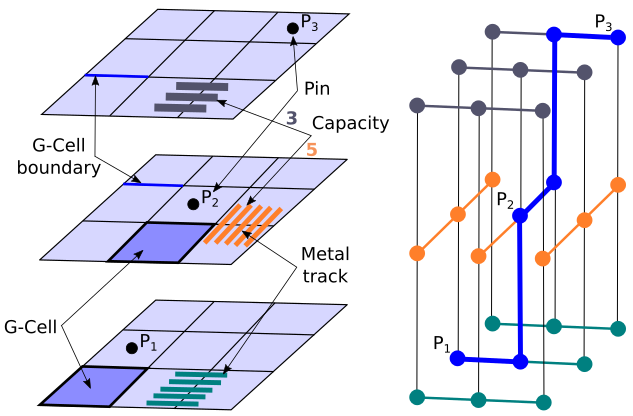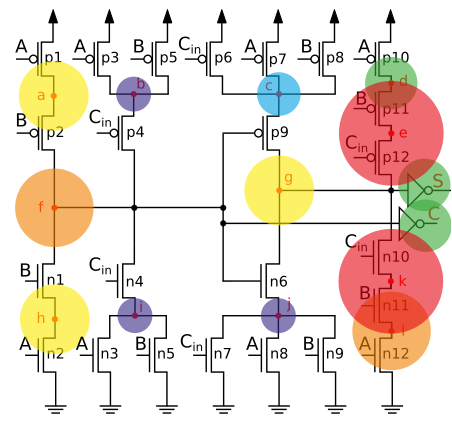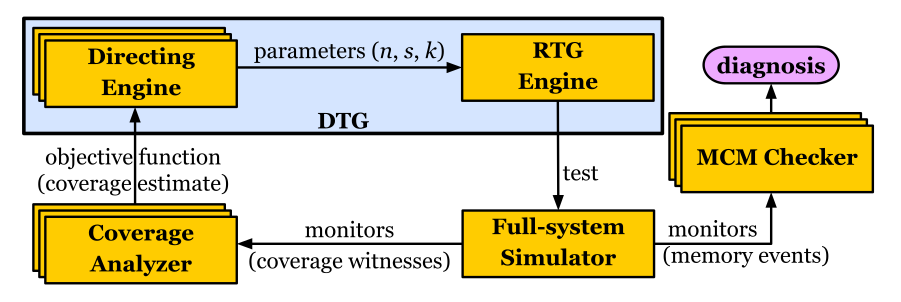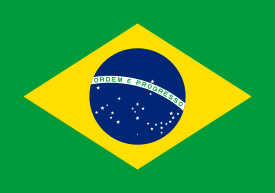About us
The Embedded Computing Lab (ECL) is one of the research laboratories of the Technology Center (CTC – Centro Tecnológico) of the Federal University of Santa Catarina (UFSC – Universidade Federal de Santa Catarina).
Its team is composed of professors, mostly from the Department of Informatics and Statistics (INE), PhD, Master’s and undergraduate students from the fields of Computer Science, Electronic Engineering and Electrical Engineering. The research activities carried out are guided by the technological trends of implementation of high complexity integrated computer systems (SOCs – systems-on-chip), both in terms of hardware design and development of embedded applications on chip.
Check out our Youtube Channel  and our Linkedin profile
and our Linkedin profile .

Mission Statement
ECL’s primary mission is scientific research into new artifacts and new computing and hardware design techniques aimed at the requirements of Embedded Computing on Chip.
Research Areas

Algorithms and Architectures for Image and Video Processing
Video compression is of extreme importance for the usage of digital videos. At ECL, we develop hardware solutions such as the Fractional Motion Estimation, one of the most expensive steps in video coding, reducing significantly the energy consumption. We also combine traditional methods with Artificial Inteligence to improve the coding efficiency.

Digital Integrated Circuits Design
Integrated Circuits (ICs) or “chips” are present in all electronic devices today. At ECL, we have developed a digital design flow for ASICs (application-specific integrated circuits) starting from the RTL description until the generation of the GDSII, a file containing the information for manufacturing the chip. We work with different technological nodes, as well as open source and private PDKs from various foundries around the world.

Algorithms and Techniques for Electronic Design Automation
For VLSI (Very Large Scale Integration) projects, computational tools that automate the design flow of integrated circuits are needed. At ECL, we work with algorithms and techniques for chip design automation (EDA – Electronic Design Automation), investigating the integration of tools for approximate synthesis with traditional flows and enabling the reduction of energy consumption in various applications.

Algoritmos e Arquiteturas para Processamento de Imagem e Vídeo Digital com Foco em Aplicações de Compressão
Lorem ipsum dolor sit amet, conse ctetur adipisicing elit, sed do eiusmod tempor incididunt ut…

Algoritmos e Arquiteturas para Aprendizado de Máquina com Baixo Custo Computacional
Lorem ipsum dolor sit amet, conse ctetur adipisicing elit, sed do eiusmod tempor incididunt ut…

Algoritmos e Técnicas para a Automação do Projeto de Chips
Lorem ipsum dolor sit amet, conse ctetur adipisicing elit, sed do eiusmod tempor incididunt ut…

Circuitos e Sistemas Tolerantes a Falhas
Lorem ipsum dolor sit amet, conse ctetur adipisicing elit, sed do eiusmod tempor incididunt ut…

Avaliação da Robustez de Circuitos CMOS com FinFET
Lorem ipsum dolor sit amet, conse ctetur adipisicing elit, sed do eiusmod tempor incididunt ut…

Error-tolerant Circuits and Systems
With the miniaturization of transistors, more and more particles are capable of interacting and interfering with the operation of electronic devices. At ECL, we develop techniques to study and mitigate the effects of the interaction of electrical particles in different types of circuits, in different technological nodes.

Multicore Testing
General-purpose processors have complex protocols for working with memory accesses, and these protocols need to be validated. ECL has developed a framework for verification: AI algorithms direct the tests by generating parameters to create parallel programs, which are simulated, checked and which generate analysis information for new tests.
Projects
Ophidian
Open-Source Library for Physical Design Research and Teaching
Ophidian is an open source library that aims to facilitate the teaching and research of algorithms and techniques for the automation of EDA (Electronic Design Automation) chip design, especially in the physical design stages (placement, routing, legalization, clock-tree synthesis etc). It offers an open source code of an basic infrastructure composed of efficient data structures, input and output routines for the main industrial formats and implementations of several classical algorithms.
Theseus
Theseus is an Open Source project of a video encoding system. The goal of this project is to generate a modular and clear software architecture for educational and research purposes.
Ophidian
Open-Source Library for Physical Design Research and Teaching
Ophidian is an open source library that aims to facilitate the teaching and research of algorithms and techniques for the automation of EDA (Electronic Design Automation) chip design, especially in the physical design stages (placement, routing, legalization, clock-tree synthesis etc). It offers an open source code of an basic infrastructure composed of efficient data structures, input and output routines for the main industrial formats and implementations of several classical algorithms.
Theseus
Theseus is an Open Source project of a video encoding system. The goal of this project is to generate a modular and clear software architecture for educational and research purposes.
Researchers
Professors

Cristina Meinhardt
- Error-tolerant circuits and systems
- Analysis of the robustness of FinFET technology
- Exploration of mitigation techniques in hardware and software
- Algorithms and techniques for automating the design of VLSI chips – EDA (Electronic Design Automation)
- Digital project aiming energy efficiency
- Exploring machine learning and approximate computing techniques
José Luís Güntzel
- Algorithms and hardware architectures for digital video compression processing
- Software for chip design (EDA – Electronic Design Automation), especially positioning and routing
- Machine learning application to digital video compression and EDA
- Design of energy-efficient Systems on a Chip (SoCs)
Luiz Cláudio Villar dos Santos
- Electronic Design Automation (EDA), especially Functional Verification of Multicore Chips
- Memory system verification
- Application of Deep Learning techniques to verify coherent shared memory models
Mateus Grellert
- Algorithms and hardware architectures for digital video compression processing
- Software for chip design (EDA – Electronic Design Automation), especially positioning and routing
- Machine learning application to digital video compression and EDA
- Design of energy-efficient Systems on a Chip (SoCs)
Ismael Seidel
- Hardware and software solutions for visual signals processing/compression
- Images
- Videos
- Light fields
- Point clouds
- Application of machine learning to visual signals compression
- Low energy consumption
- Dedicated hardware architectures
- Approximate computing
Collaborators

Laleh Bejat
Affiliation: University of Calgary, Canada

Laércio Lima Pilla
Affiliation: LaBRI (CNRS & Univ. de Bordeaux), France

Luis Alberto da Silva Cruz
Affiliation: University of Coimbra, Portugal

Vinícius dos Santos Livramento
Affiliation: Flow Traders, Netherlands

Jônata Tyska Carvalho
Affiliation: Federal University of Santa Catarina (UFSC), Brazil

Leonardo Bandeira Soares
Affiliation: Federal Institute of Rio Grande do Sul, Brazil

Laleh Bejat
Affiliation: University of Calgary, Canada
Luis Alberto da Silva Cruz
Affiliation: University Coimbra, Portugal
Laércio Lima Pilla
Affiliation: LaBRI (CNRS & Univ. de Bordeaux), France
Ismael Seidel
Vinícius dos Santos Livramento
Affiliation: Flow Traders, Netherlands
Leonardo Bandeira Soares
Affiliation: Federal Institute of Rio Grande do Sul, Brazil
Jônata Tyska Carvalho
Affiliation: Federal University of Santa Catarina (UFSC), Brazil
PhD Students

André Beims Bräscher

Augusto Andre Souza Berndt

Bruno Dourado Miranda
Luiz Henrique De Lorenzi Cancellier

Marcio Monteiro

Sheiny Fabre Almeida

Tiago Augusto Fontana

Vinícius Zanandrea

Vinícius Zanandrea

André Beims Bräscher
Augusto Andre Souza Berndt
Master’s Students

Nícolas Pfeifer
Vanio Rodrigues Filho
Undergraduate Students
Bolsistas de IC, Alunos de TCC e Voluntários

Arthur João Lourenço

Bernardo Borges Sandoval
Felipe Elton Pazini Savi

Fillipi Mangrich Costa de Souza

Gabriel Lima Jacinto

Gabriela Furtado da Silveira

Isac de Souza Campos

João Carlos Prats Ramos

João Gabriel Firta Foes

João Mai

João Marcos Marqueti
João Pedro Cantador

Luis Antonio Spader Simon

Matheus Fernandes Bigolin

Murillo Cordeiro Guindani

Naiara Sachetti

Arthur João Lourenço
Bernardo Borges Sandoval
Bruna Suemi Nagai
Daniel Igiski Baron
Luis Antonio Spader Simon
Gabriel Baiocchi de Sant’Anna
Gabriel Lima Jacinto
Isac de Souza Campos
Luis Antonio Spader Simon
Marcelo Renato Garcia Pezzolla
Murillo Cordeiro Guindani
Pedro Henrique Aquino Silva
Pedro Machado Santos Rohde
Rafael Neves de Mello Oliveira
Bryan Martins Lima
Partnerships














Contact Us
Address
University Campus, s/n, Trindade district
Technology Center (CTC)
INE Building, room 417
P.O. Box 476 / CEP 88040-900
Florianópolis / SC
eclufsc@gmail.com
Address
University Campus, s/n, Trindade district
Technology Center (CTC)
INE Building, room 417
P.O. Box 476 / CEP 88040-900
Florianópolis / SC
eclufsc@gmail.com




























